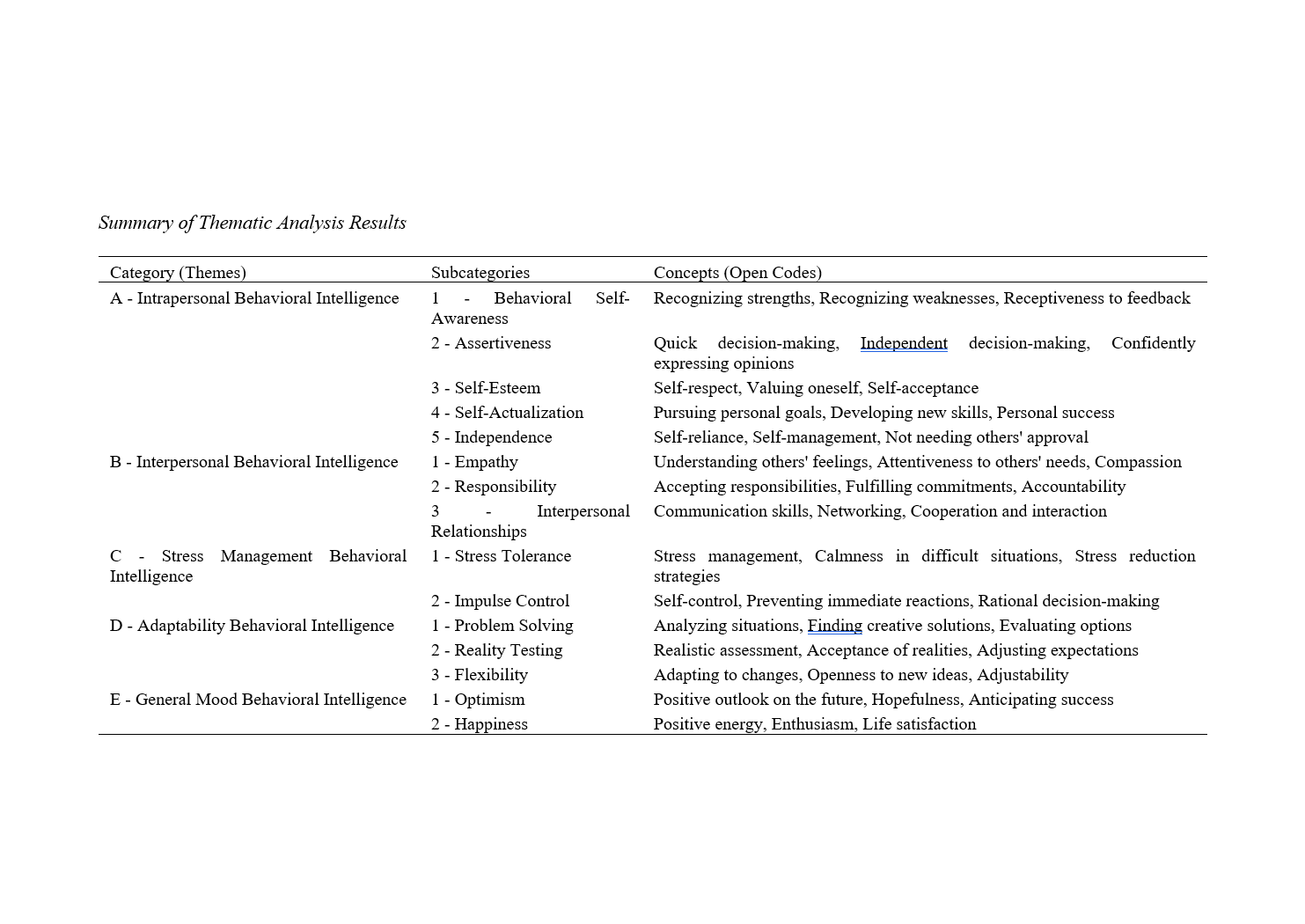Presenting an Efficient Adaptive Model Based on Employee Behavioral Intelligence (Case Study: Customs Administration and Tax Administration of Hormozgan Province)
Keywords:
Behavioral Intelligence, Employee Performance, Organizational Outcomes, Intrapersonal Intelligence, Interpersonal Intelligence, Stress Management, Adaptability, General Mood, Customs Administration, Tax AdministrationAbstract
Objective: This study aims to present an efficient adaptive model based on employee behavioral intelligence, specifically within the Customs Administration and Tax Administration of Hormozgan Province. The focus is on understanding the impact of various dimensions of behavioral intelligence, including intrapersonal, interpersonal, stress management, adaptability, and general mood intelligence, on employee performance and organizational outcomes.
Methodology:
A qualitative research design was employed, utilizing semi-structured interviews to collect data from 22 employees of the Customs Administration and Tax Administration of Hormozgan Province. Participants were selected through purposive sampling to ensure rich and relevant data. The interviews were transcribed and analyzed using NVivo software, which facilitated the identification of key themes and patterns. Theoretical saturation was achieved, ensuring the comprehensiveness of the data collected.
Findings: The study identified several key dimensions of behavioral intelligence that significantly impact employee performance. Intrapersonal intelligence, including self-awareness, assertiveness, self-esteem, self-actualization, and independence, was found to be crucial for personal and professional growth. Interpersonal intelligence, encompassing empathy, responsibility, and effective interpersonal relationships, was essential for teamwork and collaboration. Stress management intelligence, including stress tolerance and impulse control, enabled employees to handle workplace pressures effectively. Adaptability intelligence, involving problem-solving, reality testing, and flexibility, was vital for navigating dynamic work environments. General mood intelligence, characterized by optimism and happiness, was linked to higher job satisfaction and productivity.
Conclusion: The findings highlight the critical role of behavioral intelligence in enhancing employee performance and organizational outcomes. By understanding and developing various dimensions of behavioral intelligence, organizations can create a more supportive, adaptive, and productive work environment. The study provides valuable insights for both researchers and practitioners, emphasizing the importance of comprehensive training programs and a positive organizational culture.
Downloads

Downloads
Additional Files
Published
Issue
Section
License
Copyright (c) 2024 Mohammad Ali Sadeghi (Author); Abbas Babaeinejad (Corresponding Author); Reza Zeinalzadeh, Mohammadmehdi Bagheri (Author)

This work is licensed under a Creative Commons Attribution-NonCommercial 4.0 International License.






















